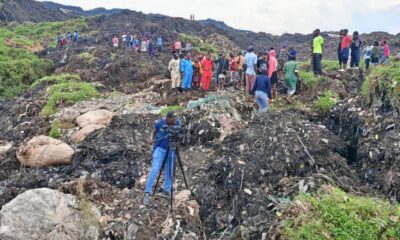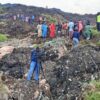Guest Writer
With biotech law in place, mass sensitization is next logical step
The process leading to the enactment of the National Biosafety law recently, had been a long one involving consultations, counter consultations, benchmarking, field visits, talk shows, newspaper articles among other public awareness methods. Uganda’s position was awkward as it was already conducting several research trials on transgenic crops.
Uganda had already ratified the Cartagena Protocol on Biosafety in 2002 when Cabinet passed the Biosafety Policy 6 years later in 2008. The Cartagena protocol that Uganda ratified required it be domesticated by countries party to it. Enacting a biosafety law that would among others regulate the trans-boundary movement of Genetically Modified Organisms or Living Modified Organisms as it is in the protocol was key in domesticating the Cartagena protocol.
The protocol, as it is in the national biotechnology and biosafety policy, requires senstitization of the masses. In passing the Bill the Committee of science and technology of the current and the previous parliament consulted the masses.
With the enactment of the biosafety law, the Ministry of science technology and innovation, and other relevant ministries like that of Agriculture and environment can now roll out sensitization programs aimed and education the masses but above all, training the extension workers on what biotechnology is all about and how they can contribute in its implementation for the benefit of farmers who need it.
The challenges that biotechnology seek to address are real both in Uganda and in the region. The effect of climate change has brought with it uncertainties like weather unreliability, drought; pests and disease. Some of these challenges have been extremely difficult to handle through conventional means. Biotechnology with its uniqueness offered scientists a great tool of improving indigenous crops for the benefit of farmers.
National Agricultural Research Organisation under its various crop programs are developing genetically modified crops to overcome some of the above challenges. The crops under confined field trials include: banana resistant to banana bacterial wilt; banana rich in provitamin A; banana resistant to black sigatoka; cassava resistant to cassava brown streak disease and cassava mosaic disease; potato resistant to late blight; maize resistant to drought and insects; rice tolerant to abiotic stress.
The Government of Uganda through several policies like plan for the modernization of Agriculture, Poverty eradication Action Plan, Prosperity for all, and the most recent Operation Wealth Creation has pushed for the need to empower smallholder subsistence farmers into gainful agriculture through the adoption of improved seeds, fertilizers, and appropriate advisory services.
All these Policies, in the absence of sustainable improved crop varieties that can withstand the challenge of drought, pests and disease may not have much impact on the livelihoods of ordinary farmers.
The enactment of the national Biosafety law provides a tremendous opportunity for scientists to bring out novel products that they have been improving for farmers. The new Ministry of Science, Technology and Innovation has a great role to play in spearheading biotechnology based research in agriculture, pharmaceuticals, and industries in order to place Uganda as a center of excellence for biotechnology in the great lakes region.
Members of Parliament to should be applauded for taking this bold step amidst resistance from sections of the public. The law that they have enacted will ensure, the benefits of biotechnology are harnessed safely for the good of Ugandans and any concerns will now be having a fully fledged body that can address those concerns.
It should be noted that Uganda joins several African countries that already have the law. With the law in place, we expect Ugandan scientists to continue being transparent and engaging in the research process the way they had been before the law.
These will provide opportunity for Government leaders, extension workers and farmers with opportunity to make decision on whether to adopt GMOs or not based on scientifically proven facts.
The Writer is an Agricultural Communications Expert
Twitter @onguisaac
Comments



















